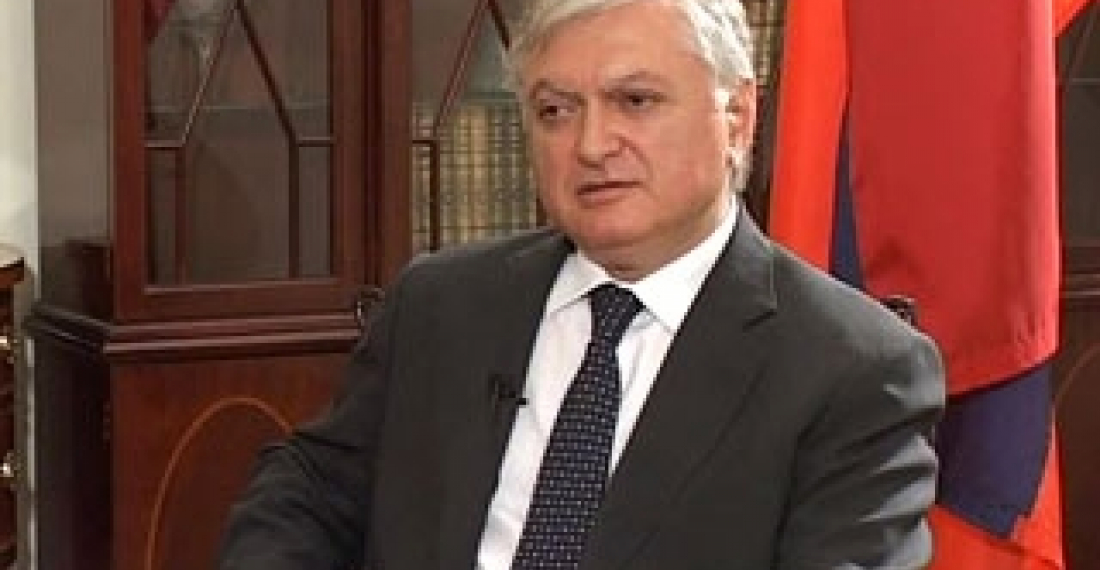There is no alternative to the peaceful resolution of the Karabakh conflict, Edward Nalbandian, Foreign Minister of Armenia, said in a joint press conference with Philippe Lefort, newly appointed EU Special Representative for South Caucasus and Crisis in Georgia. Nalbandian said that during his meeting with Lefort they discussed Armenia-EU relations that have been enhanced over the last years.
"We discussed the upcoming Summit of Eastern Partnership in Warsaw and the Armenia-EU Association Agreement. Negotiations for creation of a comprehensive free trade zone between Armenia and EU as well as negotiations for visa facilitation are underway," the minister said. He is sure that the visa regime liberalization agreement will be signed within the shortest period of time. In future, it will be abolished.
In addition, he said, regional issues, in particular, the Karabakh peace process were discussed during the meeting.
"I welcome the EU's aspiration for intensifying its role in the peaceful negotiations and supporting the OSCE MG's efforts in the process. EU has repeatedly come out with statements on the given issue and we are sure that there is not alternative to peaceful negotiations in resolution of the conflict. Any attempts of use of fore or threat of force will be condemned by the world community," he said.
He recalled that G8 Summit in Deauville once again mentioned that circumstance.







